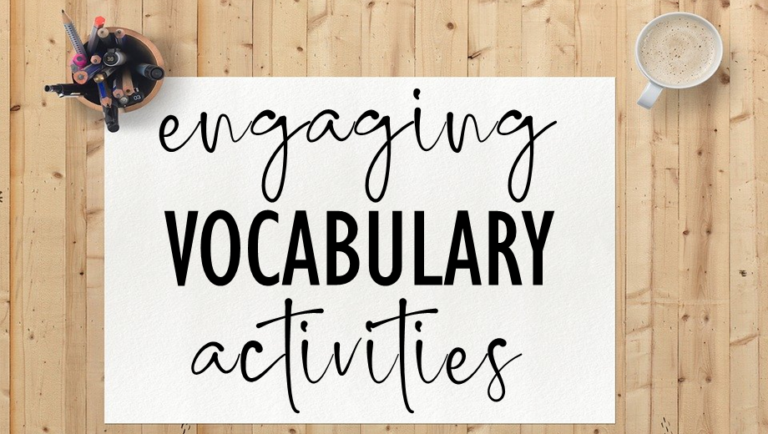Are you tired of stumbling over your words and feeling like you’re missing that extra punch in your English conversations? Well, fear not! We have the solution to take your communication skills from lackluster to extraordinary. In this blog post, we will dive into the world of essential online classes for spoken English – those magical word combinations that can instantly elevate your speech and make it more fluent and natural. Whether you’re a language learner or simply looking to add some spice to your everyday conversations, get ready for a linguistic adventure that will revolutionize how you communicate in English!
What are Collocations and Why are They Important?
Collocations are combinations of words that frequently occur together in a natural and meaningful way. These word pairs, or even larger groups of words, often have a mutual dependency and cannot be easily separated without losing their meaning or changing the context. For example, we say “strong coffee” but not “powerful coffee”, or “heavy rain” instead of “serious rain”.
Collocations are an essential aspect of online spoken English coaching classes as they play a crucial role in effective communication. They provide richness and depth to the language by making it more precise, efficient, and impactful. In fact, research has shown that using collocations correctly can significantly improve one’s fluency and accuracy in speaking and writing.
Types of Collocations: Adjective-Noun, Verb-Noun, Preposition-Noun, etc.
English collocations are an important aspect of effective communication and are essential for fluency in the language. These are word combinations that naturally occur and are commonly used by native speakers, making them an integral part of everyday English conversation. Collocations can be broadly classified into different types based on the parts of speech they involve. In this section, we will explore the various types of collocations, such as adjective-noun, verb-noun, preposition-noun, and more.
- Adjective-Noun Collocations:
This type of collocation involves an adjective modifying a noun to create a specific meaning or describe a particular situation or object. For example: “heavy rain,” “bright smile,” “strong coffee.” These combinations are commonly used in daily conversations and make the language more dynamic and expressive.
- Verb-Noun Collocations:
As the name suggests, this type of collocation includes a verb followed by a noun to form a phrase with a specific meaning. For instance: “make friends,” “take notes,” “give advice.” These word combinations add depth to our sentences and help us convey our message more effectively.
Commonly Used English Collocations and Examples
Collocations are an essential part of effective communication in the English language. They refer to words that naturally go together and are commonly used by native speakers. Using collocations correctly can greatly improve your fluency and understanding of the language. In this section, we will discuss some of the most commonly used English collocations and provide examples to help you understand their usage better.
- Make a decision – This collocation is used when referring to the act of choosing between different options or courses of action. For example: “I need to make a decision about which college to attend.
- Take advice – When someone seeks guidance or suggestions from another person, they can use this collocation. For instance: “I am not sure what course to take, so I am going to take my advisor’s advice.
- Keep in touch – This phrase is often used when talking about maintaining contact with someone over a period of time, usually through phone calls or emails. Example: “Even though we live in different countries now, we still keep in touch regularly.
- Break a habit – This collocation is used when talking about stopping a repeated behavior that is considered negative or undesirable. For example: “It’s challenging for me to break the habit of biting my nails.
How to Use Collocations in Everyday Conversation
Collocations are an essential part of effective communication in the English language. They refer to words that naturally go together and are commonly used together in everyday conversation. Using collocations correctly can greatly enhance your speaking skills and make you sound more fluent and natural.
Here are some tips on how to use collocations in everyday conversation:
- Read, listen, and observe: The best way to learn collocations is by immersing yourself in the language. Reading books, articles, or listening to podcasts and conversations can help you familiarize yourself with common collocations. Pay attention to how native speakers use words together and try to incorporate them into your own vocabulary.
- Practice using them: Once you have identified some common collocations, it’s important to practice using them in your own speech. You can do this by having conversations with friends or practicing with a language partner. This will help you become more comfortable using these words naturally.
- Use them appropriately: It’s important to use collocations appropriately in different contexts. Some collocations may be more formal while others might be used in casual conversations. For example, “make a reservation” is a more formal expression, whereas “book a table” is commonly used in informal situations.
Tips for Memorizing Collocations
Memorizing collocations can greatly improve your ability to communicate effectively in English. Collocations are word combinations that naturally occur together and have a specific meaning, making them an essential part of everyday language. However, memorizing collocations may seem like a daunting task, especially for non-native English speakers. But fear not! With these tips, you’ll be able to quickly and easily remember common collocations and use them confidently in your conversations.
- Read as much as you can
One of the best ways to familiarize yourself with collocations is to read extensively in English. Whether it’s books, articles, or even social media posts, exposing yourself to a wide range of written material will help you recognize common word combinations and their meanings. Pay attention to how words are used together and try to make mental notes of any recurring patterns.
- Use visual aids
Visual aids such as flashcards or mind maps can be incredibly helpful when trying to memorize collocations. Write down the most commonly used words on one side of the card and their corresponding collocation on the other side. You can also draw connections between related words using a mind map, which will help you see the relationships between different words more clearly.
- Practice with games and quizzes
There are various online games and quizzes available that focus specifically on practicing collocations. These interactive activities make learning fun while helping you reinforce your understanding of common word combinations.
Exercises to Practice Using Collocations
Collocations are an essential aspect of the English language that can greatly improve your communication skills. As mentioned in the previous section, collocations refer to words that frequently appear together and have a strong association with each other. In order to effectively use collocations in your conversations, it is important to practice them regularly. Here are some exercises that you can do to help you become more comfortable with using collocations:
- Matching Games: This exercise involves matching words that commonly go together. You can either create your own set of word pairs or find pre-made sets online or in textbooks. For example, you could match “strong” with “coffee”, “opinions” with “differ”, or “good” with “luck”. This activity will help you identify natural-sounding combinations and expand your vocabulary.
- Fill-in-the-Blanks: Another effective way to practice using collocations is by filling in the blanks of sentences with appropriate word pairs. This exercise not only helps you remember common combinations but also trains your brain to use them instinctively while speaking or writing. You can find various fill-in-the-blank exercises online or create your own using phrases from articles, books, or movies.
- Sentence Completion: Similar to fill-in-the-blanks, this exercise requires you to complete sentences using appropriate collocations based on context clues provided in the sentence itself.
Advantages of Using Collocations in Communication
Using collocations in communication can greatly enhance your ability to express yourself accurately and effectively. Collocations are words that naturally go together and are commonly used by native speakers of a language. They can be two or more words that frequently occur together, forming a meaningful phrase or expression.
Here are some of the advantages of using collocations in communication:
- Improved fluency: When you use collocations in your speech or writing, it makes your language sound more natural and fluent. This is because these word combinations have become ingrained in our minds through repeated exposure, making them easier to recall and use effortlessly.
- Increased clarity: Using collocations helps to avoid ambiguity and confusion in communication. By choosing the right words that naturally go together, you can convey your message clearly without any misunderstandings. This is especially important when communicating with non-native speakers who may not be familiar with certain idiomatic expressions.
- Enhanced vocabulary: Incorporating collocations into your everyday vocabulary expands your range of words and phrases, making you a more versatile communicator. As you learn new collocations, you will also gain a deeper understanding of how words work together in English.
- More accurate expression of ideas: Collocations allow us to express ourselves more precisely by conveying subtle differences in meaning. For example, instead of saying “big problem,” we can say “major issue” or “significant challenge” depending on the context of the situation.
Mastering English Collocations for Effective Communication
Mastering English collocations is crucial for effective communication in both written and spoken language. Collocation refers to the natural pairing of words that are commonly used together, and it plays a significant role in making our language sound natural and fluent.
By understanding and using collocations correctly, you can improve your overall communication skills and make yourself better understood by others. In this section, we will discuss the benefits of mastering English collocations as well as provide some tips on how to effectively incorporate them into your daily language use.
Benefits of Mastering English Collocations:
- Improves fluency: Using collocations correctly can greatly enhance your fluency in speaking or writing. When you use words that naturally go together, it makes your sentences flow more smoothly, without any awkward pauses or interruptions.
- Enhances comprehension: Proper use of collocations also helps with understanding what others are saying or writing. When you encounter a new word, being familiar with its typical partners can give you a clue about its meaning.
- Increases vocabulary knowledge: When you learn new words as part of a common phrase or expression, it becomes easier to remember them and their usage in different contexts.
- Shows proficiency in the language: Mastering English collocations demonstrates a high level of proficiency in the language and sets you apart from non-native speakers who struggle with word combinations.









Responses